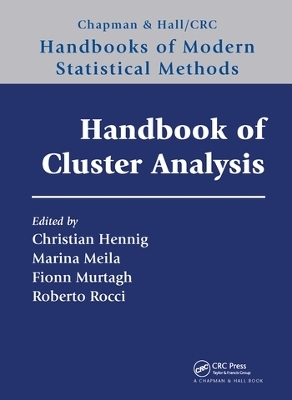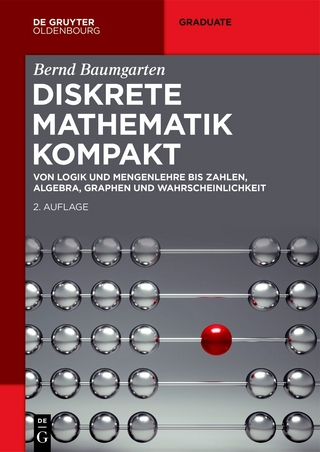
Handbook of Cluster Analysis
Chapman & Hall/CRC (Verlag)
978-0-367-57040-8 (ISBN)
Handbook of Cluster Analysis provides a comprehensive and unified account of the main research developments in cluster analysis. Written by active, distinguished researchers in this area, the book helps readers make informed choices of the most suitable clustering approach for their problem and make better use of existing cluster analysis tools.
The book is organized according to the traditional core approaches to cluster analysis, from the origins to recent developments. After an overview of approaches and a quick journey through the history of cluster analysis, the book focuses on the four major approaches to cluster analysis. These approaches include methods for optimizing an objective function that describes how well data is grouped around centroids, dissimilarity-based methods, mixture models and partitioning models, and clustering methods inspired by nonparametric density estimation. The book also describes additional approaches to cluster analysis, including constrained and semi-supervised clustering, and explores other relevant issues, such as evaluating the quality of a cluster.
This handbook is accessible to readers from various disciplines, reflecting the interdisciplinary nature of cluster analysis. For those already experienced with cluster analysis, the book offers a broad and structured overview. For newcomers to the field, it presents an introduction to key issues. For researchers who are temporarily or marginally involved with cluster analysis problems, the book gives enough algorithmic and practical details to facilitate working knowledge of specific clustering areas.
Christian Hennig is a senior lecturer in the Department of Statistical Science at University College London. Dr. Hennig is currently secretary of the International Federation of Classification Societies and associate editor of Statistics and Computing, Computational Statistics and Data Analysis, Advances in Data Analysis and Classification, and Statistical Methods and Applications. His main research interests are cluster analysis, philosophy of statistics, robust statistics, multivariate analysis, data visualization, and model selection. Marina Meila is a professor of statistics at the University of Washington. She earned a PhD in computer science and electrical engineering from the Massachusetts Institute of Technology. Her long-term interest is in machine learning and reasoning in uncertainty and how these can be performed efficiently on large, complex data sets. Fionn Murtagh is a professor of data science at University of Derby and Goldsmiths University of London. Dr. Murtagh is a fellow of the International Association for Pattern Recognition, a fellow of the British Computer Society, an elected member of the Royal Irish Academy and Academia Europaea, a member of the editorial boards of many journals, and editor-in-chief of the Computer Journal. His research interests encompass data science and big data analytics. Roberto Rocci is a professor of statistics in the Department of Economics and Finance at the University of Rome Tor Vergata. Dr. Rocci is associate editor of the Statistical Methods and Applications Journal and board member of the SIS-CLassification and Data Analysis Group (SIS-CLADAG). His research interests include cluster analysis, mixture models, and latent variable models.
Optimization Methods. Dissimilarity-Based Methods. Methods Based on Probability Models. Methods Based on Density Modes and Level Sets. Specific Cluster and Data Formats. Cluster Validation and Further General Issues.
| Erscheinungsdatum | 01.07.2020 |
|---|---|
| Reihe/Serie | Chapman & Hall/CRC Handbooks of Modern Statistical Methods |
| Sprache | englisch |
| Maße | 178 x 254 mm |
| Gewicht | 1315 g |
| Themenwelt | Mathematik / Informatik ► Mathematik |
| Technik ► Elektrotechnik / Energietechnik | |
| ISBN-10 | 0-367-57040-8 / 0367570408 |
| ISBN-13 | 978-0-367-57040-8 / 9780367570408 |
| Zustand | Neuware |
| Haben Sie eine Frage zum Produkt? |
aus dem Bereich


